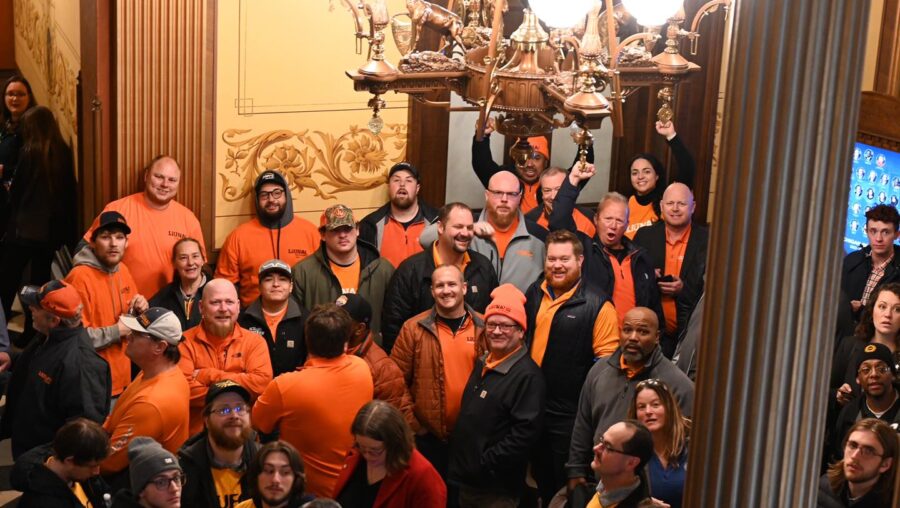Michigan’s Senate and House have both passed legislation to repeal the state’s “right-to-work” law and sent the bills to Governor Gretchen Whitmer (D) for her signature—despite attempts by three Republican senators involved in the right-wing American Legislative Exchange Council (ALEC) to salvage the anti-union legislation the group helped pass more than a decade ago.
Senate Bill 34, which passed on March 14, repeals Michigan’s right-to-work law for private sector employees, whereas House Bill 4005, which passed on March 15, repeals it for government employees.
Repeal of the state’s anti-union law, which allowed employees to opt out of paying union dues while still getting all the rights and benefits of other members of the bargaining unit, was a top priority of the first Democratic majority to control the state legislature in almost 40 years.
Faced with imminent defeat in the Senate, the three ALEC-affiliated senators attempted to add conditions to the full repeal of the legislation that would have blunted its scope and imposed onerous new regulations on unions.
ALEC first led the charge to pass right-to-work legislation in Michigan between 2007 and 2012, when the law quickly passed in a lame-duck session despite massive labor protests. The wording of that bill closely tracked with the model legislation the corporate-backed bill mill had been promoting across the country.
ALEC has a long history of backing right-to-work laws, along with a host of other anti-union policies. Many of the anti-worker bills under consideration in state houses coast to coast are based on model legislation drafted by ALEC, a pay-to-play operation in which state legislators and corporate lobbyists meet behind closed doors to strategize and develop proposed laws to deliver on a far-right public policy agenda.
Earlier this session, Senate Minority Leader Aric Nesbitt (R), an ALEC member who served in the House in 2012 and was a cosponsor of the bill that became Michigan’s right-to-work law, introduced an anti-union amendment to the repeal bill which would have exempted employers with fewer than 50 employees from the repeal.
Republican senators Dan Lauwers and Kevin Daley, both of whom have been active in ALEC, also introduced amendments that would have put conditions on the repeal.
The amendment Lauwers introduced would have made the repeal apply only to employees hired after the effective date of the legislation, meaning all Michigan workers currently employed could still enjoy union benefits without paying dues.
Daley’s amendment, which directly aligns with an ALEC proposal for union recertification, sought to force unions to hold elections every two years, an expensive and unnecessary requirement since members are already allowed to vote at any time to decertify their union as their collective bargaining representative.
In the end, each of these ALEC-backed anti-union amendments failed on straight party-line votes on the Senate floor.
Given the repeal, some business and right-wing groups are now considering the possibility of launching a ballot initiative to reverse the legislative decision by urging voters to add a right-to-work amendment to the state constitution.
Last month, Michigan’s Mackinac Center for Public Policy, a right-wing affiliate of the State Policy Network (SPN) that was instrumental in getting the original anti-union legislation passed, announced the creation of a new spin-off that is legally able to raise and spend unlimited amounts of dark money to influence legislation and ballot measures.
In a separate action, the legislature also reinstated Michigan’s prevailing wage law, which had been eliminated through a ballot initiative backed by the GOP in 2018. Under the new act, every state contract for projects that require construction workers must specify that the wages and fringe benefits paid to each class of workers equals or exceeds the rates that are standard in the locality where the work is performed.



Leave a Reply